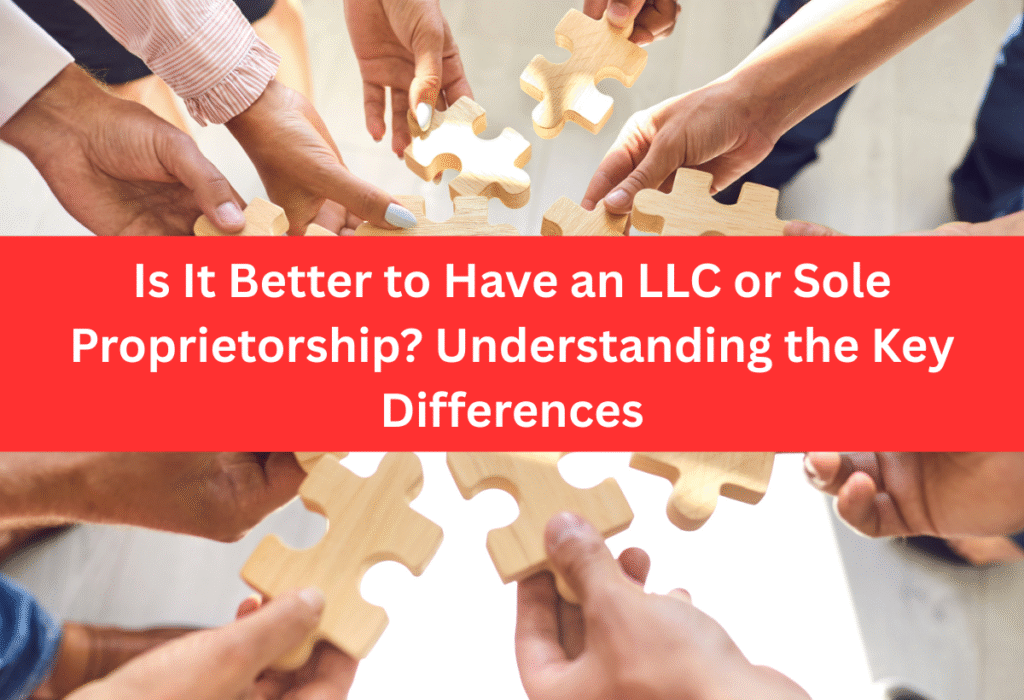When launching a new business, one of the first decisions you’ll face is choosing the right business structure. For small business owners and freelancers, the two most common options are: Limited Liability Company (LLC) and sole proprietorship. But which one is better?

The answer depends on your goals, your risk tolerance, and how much you’re willing to manage in terms of paperwork and legal compliance.
Let’s break down the key differences between an LLC and a sole proprietorship—and help you decide which fits your business best.
What Is a Sole Proprietorship?
A sole proprietorship is the simplest business structure. It’s not a separate legal entity; instead, the business and the owner are legally the same.
- No formal registration required (except business licenses or permits)
- Taxes are reported on your personal tax return
- You’re personally liable for any business debts or legal issues
It’s ideal for freelancers, side hustlers, or low-risk service providers who want to start quickly and with minimal costs.
What Is an LLC?
An LLC is a separate legal entity that protects the owner’s personal assets from business liabilities. It combines the flexibility of a sole proprietorship with the legal protections of a corporation.
- Offers limited liability protection
- Requires state-level registration and annual maintenance
- Pass-through taxation by default, but can opt for corporate taxation
LLCs are better suited for entrepreneurs who want to limit personal risk, appear more professional, or eventually bring in partners or investors.
Pros and Cons: LLC vs Sole Proprietorship
| Feature | Sole Proprietorship | LLC |
|---|---|---|
| Liability Protection | ❌ No | ✅ Yes |
| Tax Filing | Simple | Slightly more complex |
| Startup Cost | Low (or none) | Moderate (state fees apply) |
| Credibility | Basic | Higher business credibility |
| Legal Separation | None | Separate legal entity |
| Compliance | Minimal | State filings, annual reports |
When to Choose a Sole Proprietorship
- You’re testing a new idea
- You have low financial or legal risk
- You want to start quickly and cheaply
- You don’t need to hire employees or raise funding
When to Choose an LLC
- You want to protect your personal assets
- You work in an industry with potential liability
- You plan to grow, hire staff, or attract investors
- You want more credibility with clients or banks
Tax Considerations
Both LLCs and sole proprietorships can benefit from pass-through taxation, meaning profits are reported on your personal tax return. However, LLCs may have the flexibility to elect S Corporation status, which can offer tax savings on self-employment taxes.
Consulting with a tax professional can help you determine what structure provides the best tax advantages for your situation.
Final Verdict: Which Is Better?
There’s no one-size-fits-all answer. A sole proprietorship may be enough for small, low-risk operations. But if you’re building a serious business and want legal protection and scalability, an LLC is usually the better choice.
Understanding your current needs—and future goals—can help you choose the right structure to start strong and grow with confidence.